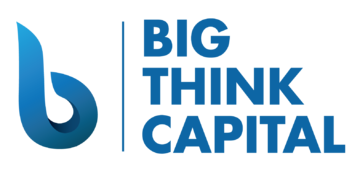
Embarking on a business acquisition journey is an exciting yet complex endeavor. Whether you’re eyeing a promising startup or seeking to expand your current operations through acquisition, securing the right financing is crucial for success. However, navigating the landscape of business acquisition loans can be daunting without a clear understanding of the available options. In this comprehensive guide, we’ll explore various types of business acquisition loans, including traditional bank loans, Small Business Administration (SBA) loans, and alternative financing solutions like asset-based lending and seller financing. By shedding light on these financing avenues, we aim to empower entrepreneurs and business owners to make informed decisions and secure the funding they need for a successful acquisition.
Traditional Bank Loans
Traditional bank loans have long been a go-to option for financing business acquisitions. These loans typically offer competitive interest rates and terms, making them attractive for well-established businesses with strong financial credentials. To qualify for a traditional bank loan, borrowers are often required to demonstrate a solid credit history, provide collateral, and present a comprehensive business plan outlining the acquisition strategy and projected financials. While traditional bank loans offer stability and favorable terms, the application process can be rigorous and time-consuming, requiring thorough documentation and scrutiny of the borrower’s financial health.
Small Business Administration (SBA) Loans
For entrepreneurs and small business owners who may not qualify for traditional bank loans due to limited collateral or credit history, Small Business Administration (SBA) loans present a viable alternative. SBA loans are partially guaranteed by the government, reducing the risk for lenders and increasing accessibility for borrowers. These loans come in various forms, including the popular SBA 7(a) loan program, which can be used for business acquisition purposes. SBA loans offer competitive interest rates and longer repayment terms than conventional loans, making them an attractive option for acquiring businesses. However, the application process can be complex, requiring adherence to SBA guidelines and thorough documentation of the acquisition plan and financial projections.
Alternative Financing Options
In addition to traditional bank loans and SBA loans, entrepreneurs have access to a range of alternative financing options for business acquisitions. Asset-based lending, for example, allows borrowers to leverage their business assets, such as inventory, equipment, or accounts receivable, as collateral for a loan. This type of financing can be particularly useful for asset-rich businesses seeking to fund acquisitions without diluting ownership or taking on excessive debt. Seller financing is another alternative option where the seller of the business provides financing to the buyer, often in the form of a promissory note or installment payments. Seller financing can offer flexibility and expedite the acquisition process, but terms may vary depending on the seller’s preferences and negotiation skills.
Securing Business Acquisition Loans: A Step-by-Step Guide
Securing a business acquisition loan involves careful planning, thorough preparation, and strategic execution. Follow these steps to increase your chances of securing the financing you need for a successful business acquisition:
Assess Your Financial Position
Before approaching lenders, take stock of your financial situation. Evaluate your personal credit score, existing debt obligations, and available assets. Lenders will scrutinize your financial health to assess your creditworthiness and repayment capacity, so it’s essential to address any red flags or discrepancies beforehand.
Develop a Comprehensive Business Plan
A well-crafted business plan is essential for articulating your acquisition strategy, demonstrating market potential, and outlining your vision for the acquired business. Include detailed financial projections, growth strategies, and a thorough analysis of industry trends and competitive landscape. A compelling business plan not only instills confidence in lenders but also serves as a roadmap for your business’s future success.
Research Lenders and Financing Options
Explore different lenders and financing options to identify the most suitable fit for your acquisition needs. Traditional banks, credit unions, SBA lenders, and alternative financing providers each have their own lending criteria, interest rates, and terms. Consider factors such as loan amounts, repayment terms, interest rates, and eligibility requirements when evaluating your options.
Gather Documentation
Lenders will require a comprehensive set of documentation to evaluate your loan application. This typically includes personal and business tax returns, financial statements (such as profit and loss statements and balance sheets), bank statements, business licenses, legal documents (such as articles of incorporation or partnership agreements), and a copy of the purchase agreement for the acquisition. Ensure that all documentation is accurate, up-to-date, and organized to expedite the loan approval process.
Build Relationships With Lenders
Cultivating relationships with potential lenders can significantly enhance your chances of securing financing. Schedule meetings or consultations with loan officers to discuss your acquisition plans, address any questions or concerns, and gain insights into the lender’s requirements and preferences. Building rapport and demonstrating your commitment to the acquisition can strengthen your loan application and increase lender confidence in your ability to repay the loan.
Prepare a Strong Loan Application
Craft a compelling loan application that highlights your qualifications, experience, and the strategic rationale behind the acquisition. Emphasize your track record of success, relevant industry experience, and your ability to manage and grow the acquired business effectively. Be transparent about any potential risks or challenges and provide mitigation strategies to reassure lenders of your preparedness.
Negotiate Terms and Conditions
Once you receive loan offers from multiple lenders, carefully review and compare the terms and conditions of each offer. Pay attention to factors such as interest rates, repayment terms, collateral requirements, and fees. Don’t hesitate to negotiate with lenders to secure more favorable terms that align with your financial goals and risk tolerance.
Close the Deal
After selecting the most favorable loan offer and completing the necessary due diligence and underwriting process, finalize the loan agreement and close the deal. Work closely with your legal and financial advisors to ensure that all contractual obligations are met, and the acquisition proceeds smoothly.
Secure Any Loan With Big Think Capital
Navigating the world of business acquisition loans requires careful consideration of the available options and alignment with your specific financial goals and circumstances. Whether you opt for a traditional bank loan, an SBA loan, or alternative financing solutions like asset-based lending or seller financing, it’s essential to conduct thorough research, assess your financing needs, and consult with financial experts to determine the best fit for your acquisition strategy.
By understanding the nuances of each financing option and approaching the loan process strategically, entrepreneurs can position themselves for success and realize their vision of acquiring and growing a thriving business. At Big Think Capital, we’re committed to supporting entrepreneurs in their journey to secure the funding they need for business acquisitions. Reach out to us today to explore your financing options and take the next steps towards achieving your acquisition goals.








